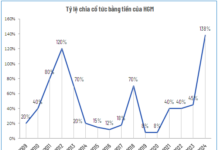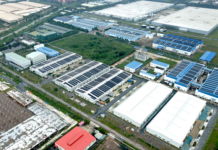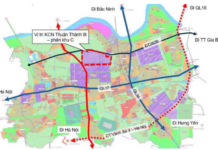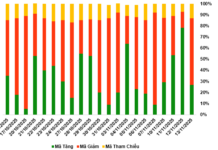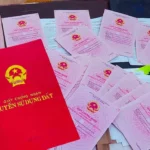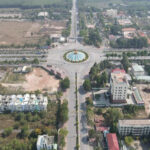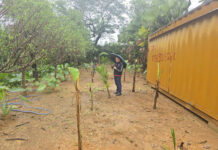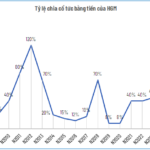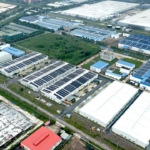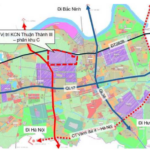In recent years, numerous cases of unauthorized construction on others’ land have been reported in several localities, sparking public outrage. In some instances, despite landowners reporting the issue and authorities issuing citations, the construction continues unabated. What does the law say about this? Can criminal charges be filed?
Article 105 of the 2015 Civil Code defines “Property as objects, money, valuable papers, and property rights.” Consequently, land use rights are considered property rights protected by law. Unauthorized construction on someone else’s land directly violates these rights. Landowners can seek court intervention to mandate demolition, restoration of the original state, and compensation for damages.
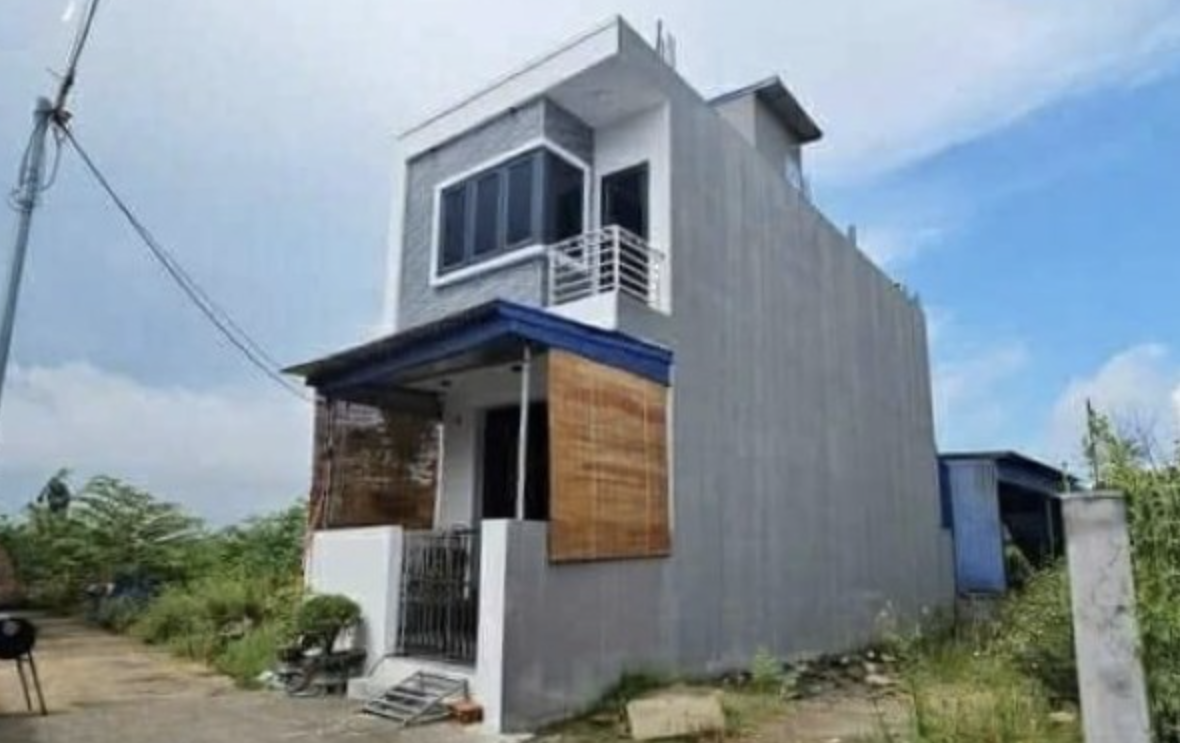
A two-story house mistakenly built on another’s land in Thien Huong Ward, Hai Phong.
Additionally, Clause 10 of Article 16 in Decree 16/2022/NĐ-CP outlines administrative penalties for unauthorized construction, encroachment, or illegal use of space managed or legally used by others or public areas, as follows:
– Fines ranging from 80 million VND to 100 million VND for unauthorized construction of private residences.
– Fines ranging from 100 million VND to 120 million VND for unauthorized construction in conservation areas, historical sites, or other protected zones.
– Fines ranging from 180 million VND to 200 million VND for construction projects requiring feasibility studies or economic-technical reports.
When does unauthorized construction on others’ land become a criminal offense?
Current laws clearly distinguish between civil, administrative, and criminal liability. Not all unauthorized construction cases lead to criminal charges, but certain criteria, if met, can result in criminal prosecution.
1. Severe Violation of Land Use Rights
– Article 228 of the 2015 Penal Code states: Individuals who encroach on land, transfer land use rights, or use land in violation of land management laws, and have previously been administratively penalized or convicted for such offenses, face fines from 50 million VND to 500 million VND, non-custodial reform for up to 3 years, or imprisonment from 6 months to 3 years.
– For offenses under Clause 2 of Article 228, penalties include fines from 500 million VND to 2 billion VND or imprisonment from 2 to 7 years.
– Key indicator: Recidivism, disregarding prior penalties.
2. Significant Property Damage
– Article 178 of the Penal Code applies if construction damages the landowner’s property (infrastructure, crops, existing structures) beyond legal thresholds. Offenders may face fines from 10 million VND to 50 million VND, non-custodial reform for up to 3 years, or imprisonment from 6 months to 3 years for damages between 2 million VND and 50 million VND.
– Damages exceeding 500 million VND can result in imprisonment from 10 to 20 years.
3. Defiant and Lawless Behavior
– Continued construction despite official citations or work stoppages may be deemed willful criminal conduct.
– Common indicators: Nighttime construction, obstructing officials, or public defiance.
4. Illegal Seizure or Encroachment
– Articles 170, 176, and 177 of the Penal Code may apply if the act involves unlawful possession or encroachment. Using the structure to occupy land, prevent landowner access, or profit through rental or sale constitutes a criminal offense.
5. Beyond “Civil Disputes”
– Boundary disputes or errors are typically resolved through civil litigation.
– However, cases involving intentional seizure, organized efforts, and severe consequences are subject to criminal prosecution.
Preliminary statistics from several localities indicate dozens of annual disputes related to unauthorized construction on others’ land. While lax enforcement of construction regulations is partly to blame, some individuals deliberately flout the law, adopting a “build first, deal later” mindset.
Clearly, unauthorized construction on others’ land cannot be dismissed as a mere “civil dispute.” Given the recurrence of such cases, the law must be rigorously enforced, including through criminal measures, to uphold justice. Only then can landowners’ rights be protected and the authority of the law be reinforced.
How to Reduce Land Use Charges When Changing the Purpose to Residential?
The current land use charges, post-change in purpose, are calculated at 100% of the priced land rate, resulting in exorbitant fees for citizens. For instance, a 400 sq. m plot in the former Vinh City, Nghe An Province, incurs a fee of VND 4.5 billion, while a 208 sq. meter plot in Hoc Mon District, the former Ho Chi Minh City, costs VND 1.7 billion. Similarly, a 400 sq. meter plot in District 7 of the old Ho Chi Minh City will cost a staggering VND 14 billion. These charges are incredibly burdensome for landowners.
The Five Amendments Legacy: Revolutionizing Vietnam’s Provincial Landscape
After 80 years of nation-building, Vietnam’s land management has undergone several pivotal transitions, evolving from feudal ownership to state ownership and eventually embracing market mechanisms. Each reform has been intrinsically linked to significant shifts in the nation’s trajectory. Experts view the current wave of institutional reforms, including provincial mergers, streamlining of bureaucratic apparatuses, and the establishment of a national database, as tantamount to a “fourth revolution” in land management.











